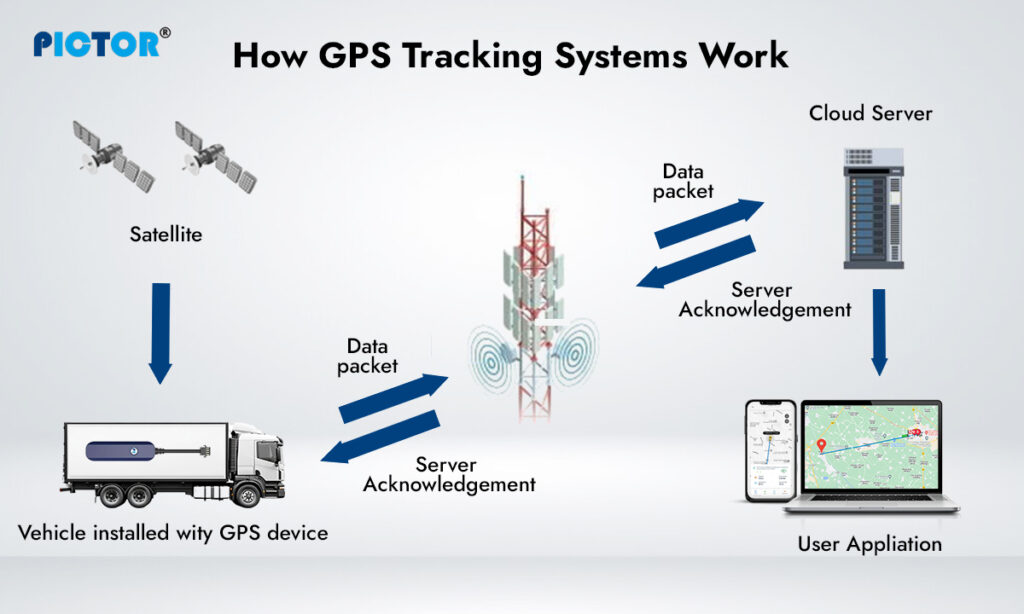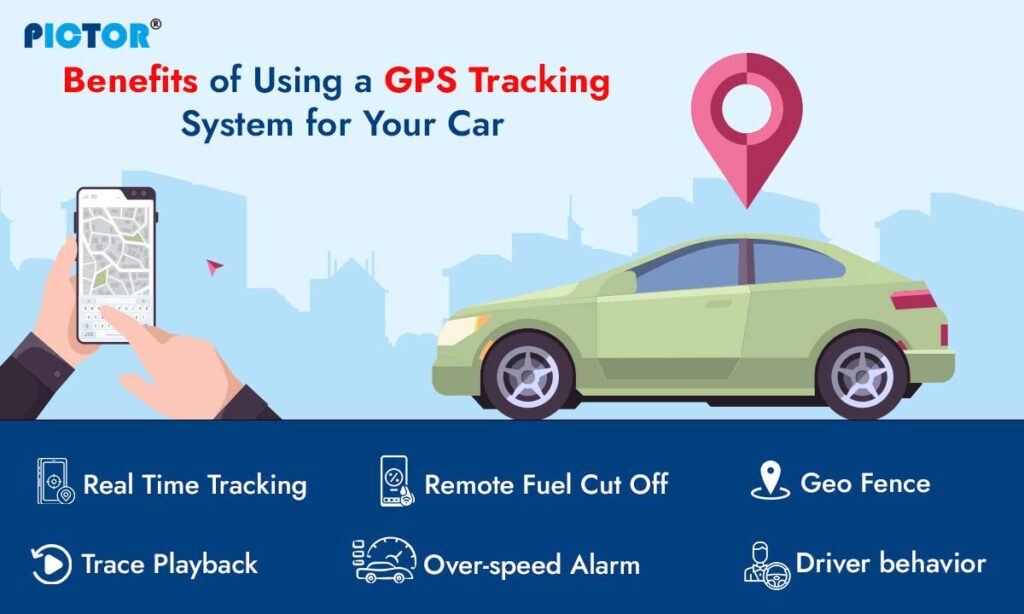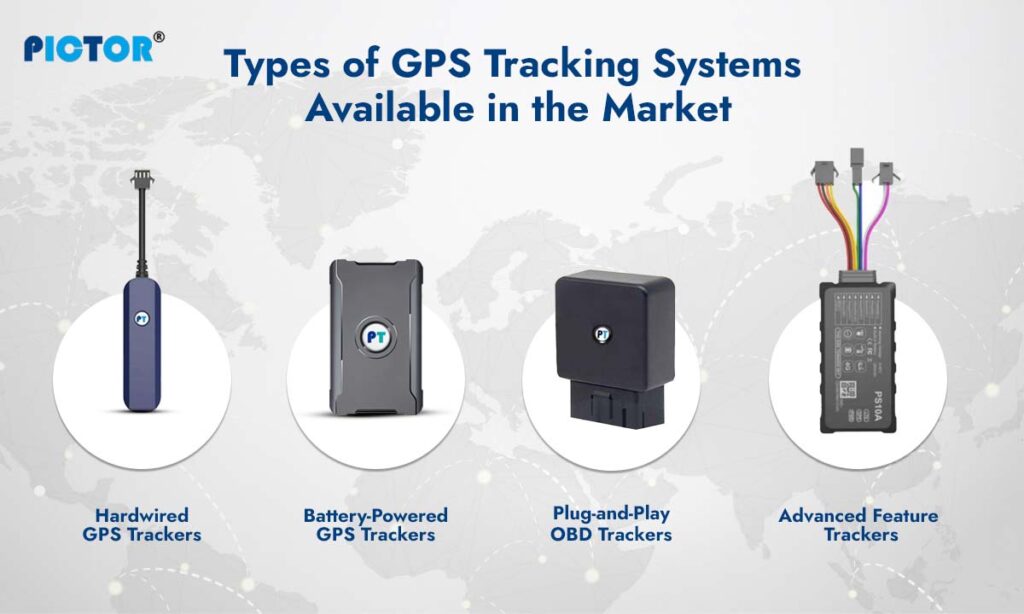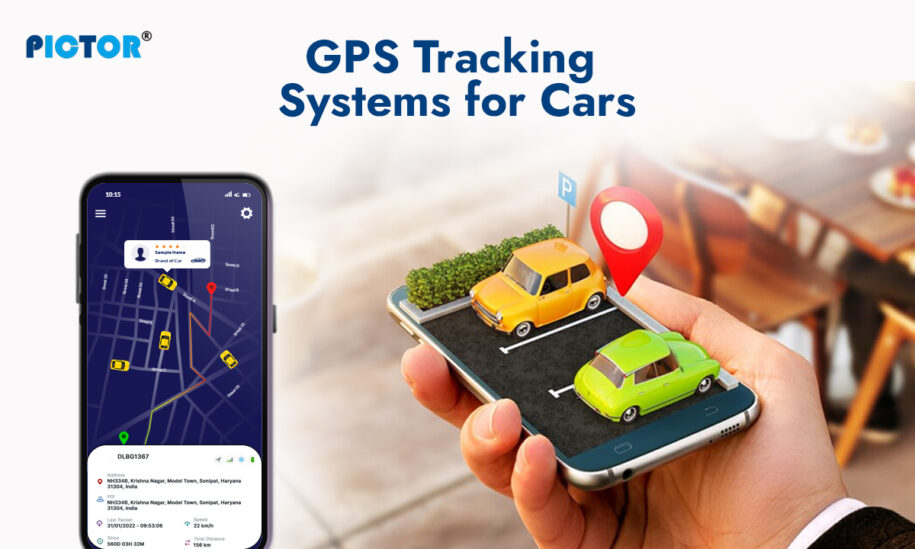Everything You Need to Know About GPS Tracking Systems for Cars in 2025
A GPS tracking system for a car has become an essential tool for vehicle owners and businesses alike. Whether you want to enhance security, monitor driving behavior, or improve operational efficiency, a GPS tracking system provides a reliable and effective solution. In this comprehensive guide, we will delve into how these systems function, their numerous benefits, available types, and how to select the right device tailored to your needs. Additionally, we will highlight the innovative product offerings from Pictor Telematics to ensure you make an informed decision.
How GPS Tracking Systems Work

The Basics of GPS Technology
GPS, or Global Positioning System, functions through a network of satellites that orbit Earth, transmitting signals to ground-based receivers. These signals are used to calculate precise location, speed, and movement patterns of GPS-enabled devices.
Key Components of a GPS Tracking System
- Satellites: Send location signals to Earth.
- Receivers: Embedded in GPS trackers, they decode satellite signals and determine positioning.
- Communication Networks: Facilitate data transfer to users via cellular networks or the internet.
- Software Interface: Provides a user-friendly platform for accessing and managing tracking data in real-time.
How GPS Tracks a Car’s Movement
When installed in a car, a GPS tracker continuously receives satellite signals to compute its location. This data is transmitted through communication networks to a central database, enabling users to access live updates or historical records of the vehicle’s movements. Advanced systems also incorporate features like geofencing and speed monitoring.
Benefits of Using a GPS Tracking System for Your Car

Enhanced Vehicle Security
A GPS tracking system acts as a proactive defense against theft by allowing real-time tracking. Should your vehicle be stolen, you can quickly locate it and notify authorities, significantly improving recovery chances.
Better Driving Behavior Monitoring
Tracking systems can evaluate driving habits, such as speeding, sudden braking, and idling. Parents can use these insights to encourage responsible behavior in young drivers, while businesses can enforce safety standards among employees.
Optimized Operational Efficiency
For businesses managing fleets, GPS tracking systems streamline route planning, reduce fuel consumption, and improve delivery times. By monitoring vehicle locations, companies can minimize downtime and boost customer satisfaction.
Preventive Maintenance Alerts
Many systems provide automated reminders for scheduled maintenance, such as oil changes and tire rotations. Staying on top of maintenance not only reduces repair costs but also ensures the longevity of your vehicle.
Peace of Mind for Families
Families with teenagers or elderly drivers can monitor their whereabouts, ensuring their safety while offering reassurance to loved ones.
Environmental Impact
Optimized routes and reduced fuel consumption also contribute to lowering your carbon footprint, making GPS tracking a responsible choice for the environment.
Types of GPS Tracking Systems Available in the Market

Hardwired GPS Trackers
These trackers are integrated into a vehicle’s electrical system, offering durability and advanced features such as geofencing and engine diagnostics. They are ideal for long-term use and fleet management.
Plug-and-Play OBD Trackers
Designed for simplicity, these trackers plug into the car’s OBD-II port. They are easy to install and provide detailed data on driving performance and diagnostics, making them suitable for personal use and small businesses.
Battery-Powered GPS Trackers
With internal batteries, these portable trackers are versatile and suitable for temporary use or when installation isn’t feasible. They are often used for tracking assets or rented vehicles.
Advanced Feature Trackers
Specialized trackers include additional functionalities like temperature monitoring, air conditioning usage tracking, and door status detection. These devices are invaluable for businesses transporting sensitive or perishable goods.
Factors to Consider When Choosing a GPS Tracking System
Compatibility with Your Vehicle
Ensure the tracker is compatible with your vehicle’s make and model. For OBD-II devices, check the availability of an appropriate port.
Desired Features
Identify the features most relevant to your needs, such as real-time tracking, geofencing, driver behavior analysis, or engine diagnostics.
Data Privacy and Security
Choose devices with robust encryption to protect your personal and vehicle information. Reliable systems prioritize user data security.
Installation Preferences
Determine whether you prefer a hardwired solution for permanence, a plug-and-play device for convenience, or a battery-powered tracker for portability.
Cost and Subscription Plans
Evaluate both the upfront cost and recurring expenses, such as subscription fees for data services or software access.
Durability and Weather Resistance
For outdoor or rugged use, opt for trackers with water-resistant and shockproof features, such as the P19H Waterproof GPS Tracker. Durable materials ensure consistent performance even in challenging conditions.
Step-by-Step Guide to Installing a GPS Tracking System
Step 1: Select the Right Device
Choose a tracker that aligns with your requirements. For instance, the G18 4G GPS Tracking Device is excellent for continuous tracking, while the PS25 OBD Car GPS Tracker offers plug-and-play simplicity.
Step 2: Prepare Installation Tools
Depending on the tracker type, gather necessary tools such as screwdrivers, adhesive mounts, and wire connectors.
Step 3: Identify the Best Installation Location
- For OBD Trackers: Plug directly into the OBD-II port, usually under the dashboard.
- For Hardwired Trackers: Discreetly install the device under the dashboard, in the trunk, or another hidden area.
Step 4: Install the Tracker
Secure the tracker using mounting brackets or adhesive strips. For hardwired devices, connect them to the car’s electrical system following the manufacturer’s instructions.
Step 5: Activate and Configure the Tracker
Power on the device and link it to its corresponding app or software platform. Adjust settings to match your preferences, such as setting up geofencing or maintenance alerts.
Step 6: Test the System
Verify functionality by checking real-time location updates and other features. Ensure the system is responsive and accurate before regular use.
Pictor Telematics Product Line: Versatile GPS Tracking Solutions
Pictor Telematics offers a wide range of GPS tracking devices to meet diverse needs. Here’s a closer look at their product lineup:
G18 4G GPS Tracking Device for Car
- Provides reliable 4G connectivity for real-time location updates.
- Best suited for fleet management and personal applications.
PS25 OBD Car GPS Tracker
- Easily plugs into the car’s OBD-II port for quick installation.
- Tracks vehicle performance and location in real time.
PS21A OBD GPS Tracker
- Comprehensive monitoring through the OBD interface.
- Captures driving routes, engine diagnostics, and performance data.
PS03 GPS Tracker with AC and Door Detection
- Monitors air conditioning usage and door status.
- Ideal for heightened security and monitoring needs.
PS07 GPS Tracker with Temperature Sensor
- Tracks temperature changes, ensuring safe transportation of sensitive goods.
P19H Waterproof GPS Tracker
- Rugged design with water-resistant features for outdoor or harsh environments.
- Perfect for heavy-duty and industrial applications.
PT06 GPS Tracker
- Compact and adaptable, suitable for various vehicle types.
- Provides accurate and consistent tracking data.
PT17H GPS Tracker
- User-friendly and dependable, covering essential tracking requirements.
- Suitable for both personal and business use.
Conclusion
A GPS tracking system for a car delivers significant advantages, from safeguarding your vehicle to enhancing operational efficiency. By carefully evaluating your needs and selecting the right tracker, you can enjoy benefits like improved security, optimized performance, and peace of mind. With innovative solutions from Pictor Telematics, you can confidently invest in a device that meets your specific requirements, ensuring seamless tracking and robust functionality.
Pictor Telematics: Leading the Way in GPS Tracking and Telematics Solutions

Leave a Reply